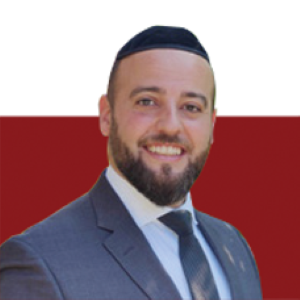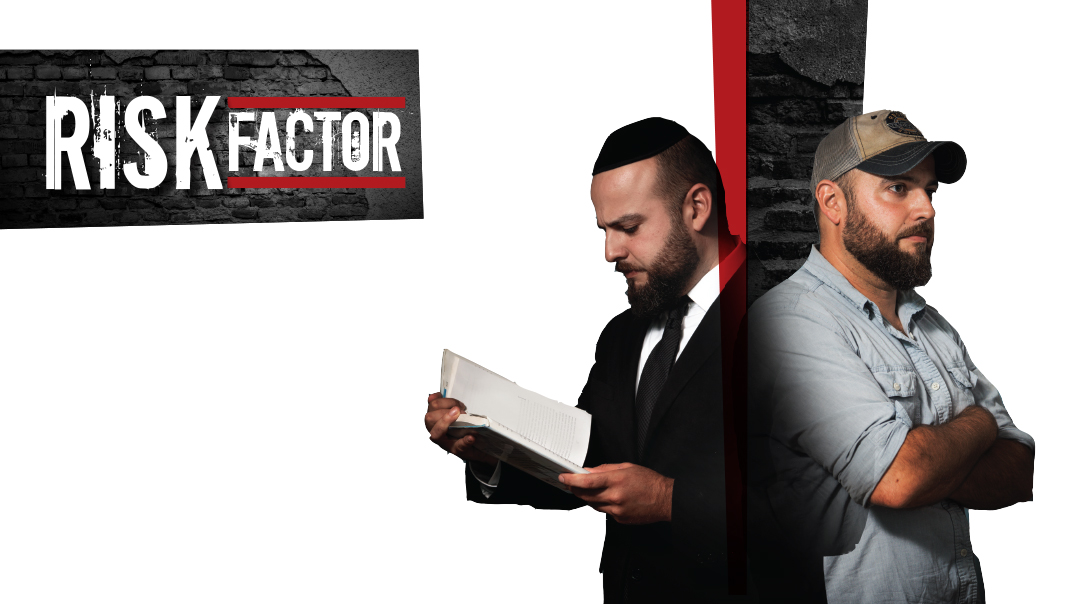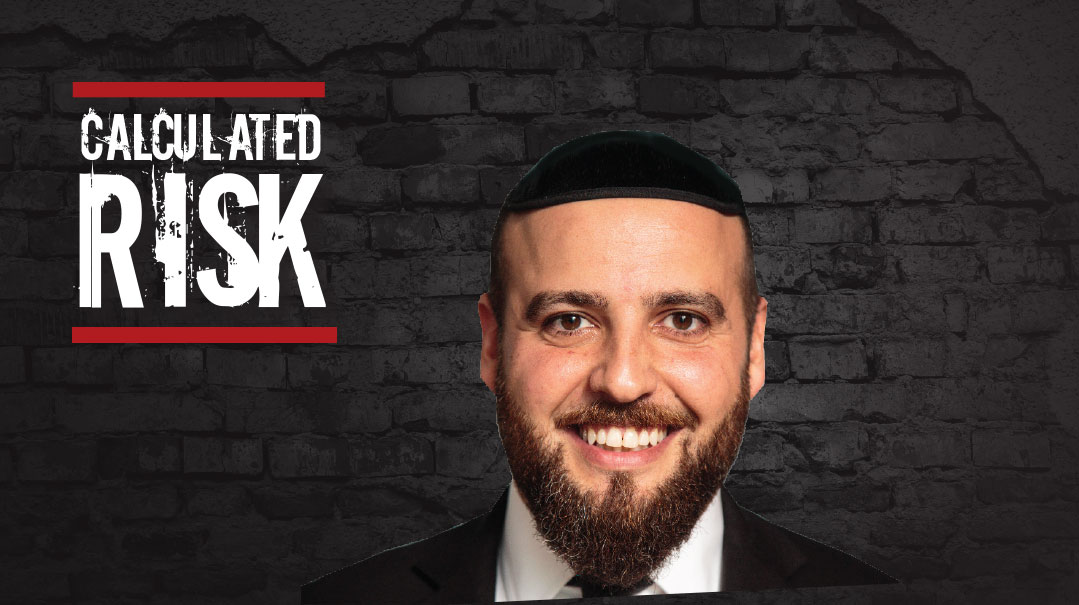You Chose to Be Here

“Please, you don’t understand. It’s assur. I’m not allowed to”
This is a story from a different time, when sacrifice for Torah was a part of daily life: In 1965, when my father, Rabbi Yitzchak Bensoussan, was 13 years old, he was brought from Morocco to the Mir Yeshiva in Brooklyn by the venerable Rav Avraham Kalmanovitch. No family. No money. Nothing but the clothing on his back, a few belongings, and what was referred to throughout my childhood as “the chaburah,” a group of Moroccan boys who sailed to America together. Who learned together. Who grew together. This tight-knit group stayed the closest of friends, bound by a unique history and experiences.
Even as adults, this group remained close. Once a year they would join together at the Moroccan minyan on East 7th St. led by Rabbi Shlomo Lankry. His passion and love for every Jew, regardless of their religious standing and background, made a deep impression on us kids. Rabbi Lankry would grab the less religious stragglers from the corners of the room, have a l’chayim, and tell them a joke in his gruff Arabic sing-song peppered with some French and Hebrew and then an English word as the punchline. They would all double over laughing, and even though we never got the joke, we felt the love.
It was like he could see into their souls and knew how great they could be even if they didn’t know it yet.
In the Moroccan shuls, every single person present has a role, from the greatest rabbi to the youngest child and even the old man who can’t read Hebrew but knows the siddur by heart. Everyone is part of the davening in some way. Everyone sings and everyone participates. No exceptions.
Rabbi Chaim Dahan zt”l enchanted the crowd with his voice. His close friend, my older brother Duvi, would join in, accompanied by the Harrars, the Cohens, the Wanounous, and others. These were the yeshivah guys. The sons of the chaburah. Their job was simple. Dance like your life depended on it. Let every person in that room know why your fathers sacrificed everything to be here.
I never thought I would have Simchat Torah like that again.
Until last year.
***
When we lived in Israel, my brother Ari and his family lived down the block from us. Our kids had grown up together, but they hadn’t seen each other since we’d each moved to opposite coasts of the US. We decided to fly from Cleveland to LA so that we could spend Yom Tov together.
When I walked into the Magen Avot shul in Los Angeles, I felt it right away. I was home. I might as well have been 12 again, holding my father’s hand as we walked into the Moroccan minyan.
This seemingly typical storefront shul on Pico Boulevard is led by the legendary Rav Mordechai Lebhar. Rav Lebhar has a deep and unique knowledge not only of Sephardic halachah, but also of the Sephardic heart. As soon as I met him, I could tell that “Lebhar” was not just a surname, but a testimony of his character — a heart the size of a mountain.
I didn’t think anything could match the amazing hakafot that night. Until the hakafot we had the next morning.
Rabbi Lebhar spoke first, on the importance of each hakafah. Then my brother spoke, a soul-stirring speech that had everyone ready to dance with their whole heart and soul.
The hakafot were magical.
The children danced around Rabbi Lebhar as he threw candy and announced the accomplishments of each one. I soaked up every bit of the beauty of what was happening in the swirling, whirling dance around me; I felt so blessed that Hashem gave me this minyan and this moment. When it was time for the aliyot, my son said, “Papa! Uncle Ari said that all of the kids get an aliyah!” His excitement and exuberance triggered a memory from my own childhood: the excitement, love and passion that would emanate from Rabbi Lankry as he ran outside the shul to pull in every single guy for an aliyah. Everyone got an aliyah — he wouldn’t take no for an answer.
I looked over my shoulder toward the entrance of the storefront that housed Magen Avot. It occurred to me that this minyan was authentic. They had their Rabbi Lankry in Rav Lebhar, the songs, the piyutim, the people, even the arak was authentic. But the cherry on top was the rag-tag gang of non-religious Moroccans standing in the back — they weren’t shul-goers, but they came to watch the dancing.
Even as I watched, the gabbai approached and invited them to come up for an aliyah. They declined. But I couldn’t let that happen; it would be a betrayal of the responsibility my father and Rabbi Lankry gave to my brothers and me.
I locked eyes with the guy who seemed to be the most adamant about not going up to the Torah. I left my place and headed toward him. I saw the dread in his eyes but I didn’t care. This was bigger than him or me.
“Shalom, achi,” I said. “You ready?”
He avoided my eyes and shook his head. No.
“Everyone gets an aliyah, achi,” I pressed. “Everyone.”
He hunched his shoulders and mumbled something about not being able to do it.
“It’s Simchat Torah. Everyone gets one,” I repeated. “What are you afraid of?”
That did it. He looked up and met my eyes defiantly.
“Look, I said I’m not able to do it, zeh hu!”
“I heard what you said,” I reiterated, “but I’m not getting up there knowing I left you behind.”
“What do you care?”
“I don’t care about you,” I retorted, “but after 120 I’m not having your Savta show up and demand to know why I didn’t do everything in my power to make sure you had an aliyah on the most important time for it in the year!”
He looked at me. For a guy like this, that was the ultimate argument.
But then he leaned in and whispered, his voice cracking with emotion, “Please, you don’t understand. It’s assur. I’m not allowed to.”
I looked into his eyes. He wasn’t joking. He wasn’t trying to get rid of me. He was dead serious. He knew something I didn’t and that something meant he was not allowed to be called up to the Torah.
I’m not proud of this, but I believed him. I mentally started retreating. I didn’t know these halachos well, I wasn’t sure anymore that I was doing the right thing. You’re a fool for thinking you could pull off a Rabbi Lankry, I berated myself. You went after the one guy who isn’t allowed to have an aliyah!
But something didn’t feel right.
Without pausing to think it through I turned to him and asked, “Why can’t you?”
He glanced around, leaned in closer, and whispered in Hebrew, “I drove here on the chag. Hakadosh Baruch Hu wouldn’t want someone like me to get an aliyah. Assur.”
I thought I could physically feel my heart break.
“You drove here?!” I heard someone say in disbelief. It took a minute to realize it was me talking.
He stared at the floor.
“You drove here?” I repeated. “Are you kidding me? You’re in LA!” I exclaimed. “Do you not know where the beach is?”
This confused him. “Mah? Beach?”
“You could have driven anywhere in the entire city. And you chose to drive here.” He was crying and so was I. “You came this far. You’re telling me you’re not going to go the next five feet to do what your soul came here for?”
“But—”
“No ‘but’! The Borei Olam knows the truth. You could be anywhere right now. And you chose to be here. To suffer the embarrassment of driving here just to be here. To be with Him and His Torah. If you don’t deserve an aliyah, then who does?”
Something happened in his eyes. He nearly knocked me over as he made his way to the bimah, whipping a tallit onto his back. He made one of the most beautiful heartfelt brachot al haTorah I’ve ever heard.
To all my Moroccan “uncles” and “cousins” of the East 7th Street shul, thank you for giving me the heart to know the words.
Rabbi Yossi Bensoussan serves as mashgiach ruchani at Yeshiva High School of Cleveland. He is a Certified Alcohol and Substance Abuse Counselor (CASAC) who currently maintains a private practice, and does motivational speaking and community education on addiction all over the US and Israel.
(Originally featured in Mishpacha, Issue 830)
Oops! We could not locate your form.









